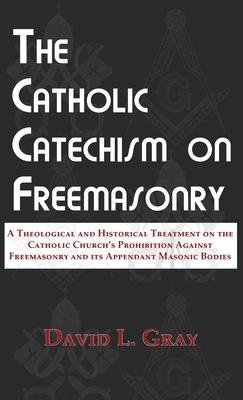The Catholic Catechism on Freemasonry: A Theological and Historical Treatment on the Catholic Church's Prohibition Against Freemasonry and its Appendant Masonic Bodies contextualizes the history and provides a theological analysis and commentary on the nine Papal documents, two Canon Laws, and two documents issued by the Congregation of the Doctrine of the Faith, which relate specifically to the Catholic Church's dogmatic prohibition against Freemasonry.
This book departs from the traditional apologetic approach to explain the Catholic Church's prohibition against Freemasonry to better examine it in a thorough, comprehensive, theological, and historical context. This book is well researched and referenced, and written only how a person with an extensive and high-level experience with Freemasonry and an academic background in history and Catholic theology could have written it.
In addition to this rare look behind the theological and political arguments that the Catholic Church has made against Freemasonry and its appendant Masonic Bodies since Pope Clement's Papal Bull In Eminenti in 1738, this catechism also answers such questions as:
- What are the Catholic Roots of Freemasonry?
- What is the Structure of Freemasonry?
- Is Freemasonry a Religion?
- What are the Core Principals of Freemasonry?
- What is the Masonic Legend of Hiram Abiff?
- Which Popes were Freemasons?
- Why were Haydn and Mozart Freemasons?
- What Role did Freemasons Play during the European and American Revolutions?
- What is the Relationship between Protestantism, Freemasonry, Communism, and Homosexualism?
- To what Degree did Freemasonry Influence the Creation of the Novus Ordo Rite?
- How did the Freemasons and their Ideological Allies in the Catholic Church (i.e. the Masonic lobby) work to remove the word 'Masonic' from the 1983 Code of Canon Law?
- Are Catholics who belong to the Masonic Order Excommunicated?
